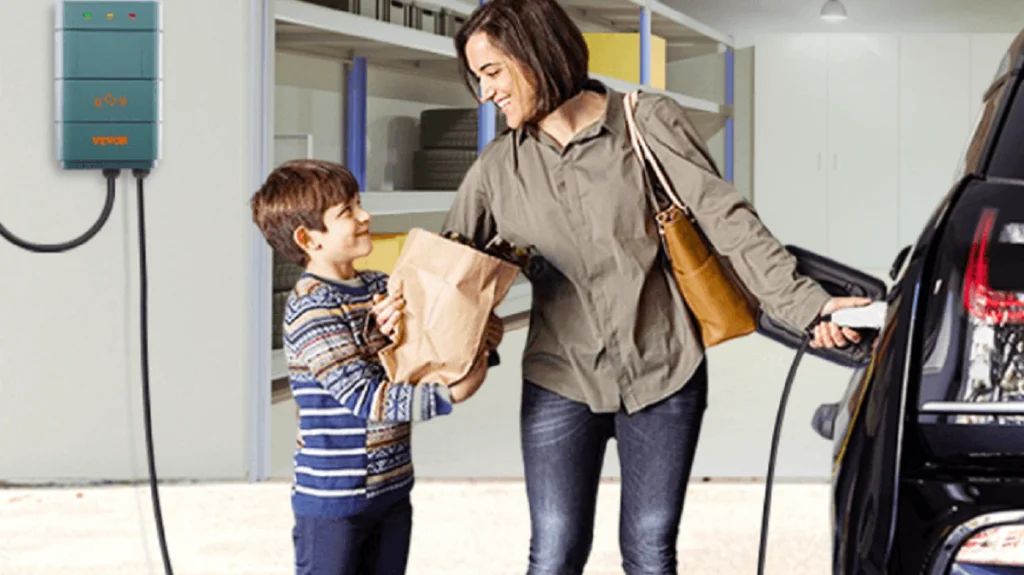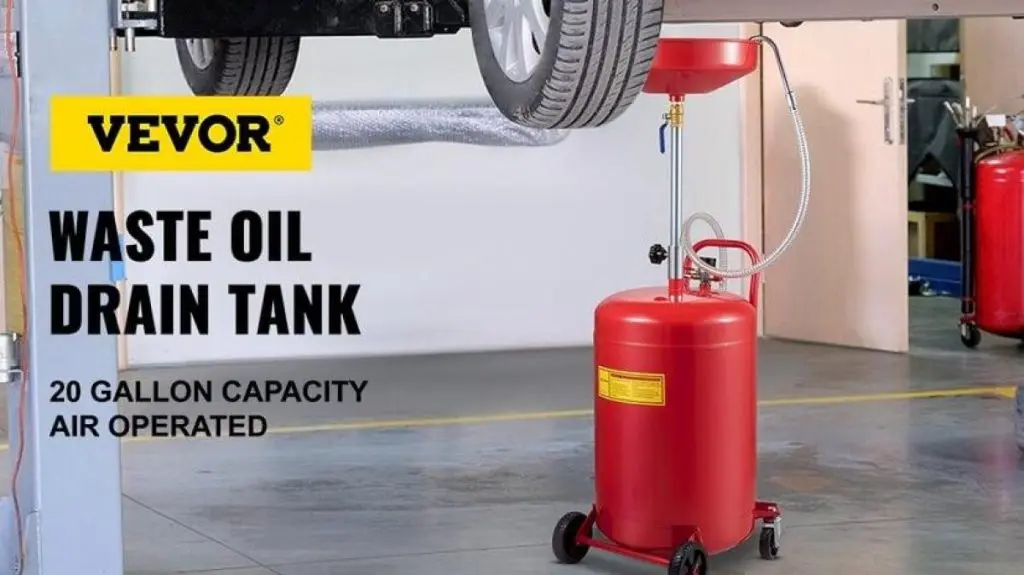Do you know electric vehicles also comprise different types of chargers such as power banks, mobile phones, etc? In the past few decades, EV charging has been a controversial topic for charging station owners, EV market analysts, EV consumers, and EV enthusiasts.
There’s no confusion regarding non-electric vehicles because you need diesel, gas, or petrol for your vehicle to function. But there’s a need for some ground understanding with EV car chargers. VEVRO offers flexibility to its owner with level 2 EV chargers and provides the freedom that every EV owner desires to eliminate the dependence on fixed charging stations. EV owners can get benefits from different types of chargers.
Furthermore, these chargers prioritize reliability and safety and include safety features such as overvoltage protection, waterproof design, and surge protection. By using this technology, customers are assured that charging their vehicles is efficient and safe.
Regardless of your falling category, this guide will provide ethical information about types of EV chargers, power levels, and available connectors in the market.
Table of contents
EV Charging 101
EV (electric vehicle) charger is a gadget used to recharge your vehicle’s battery. EV chargers are essential infrastructure for charging electric vehicles, facilitating the establishment of an EV charging network. For easy accessibility, EV chargers can be installed in public charging stations, homes, and workplaces.
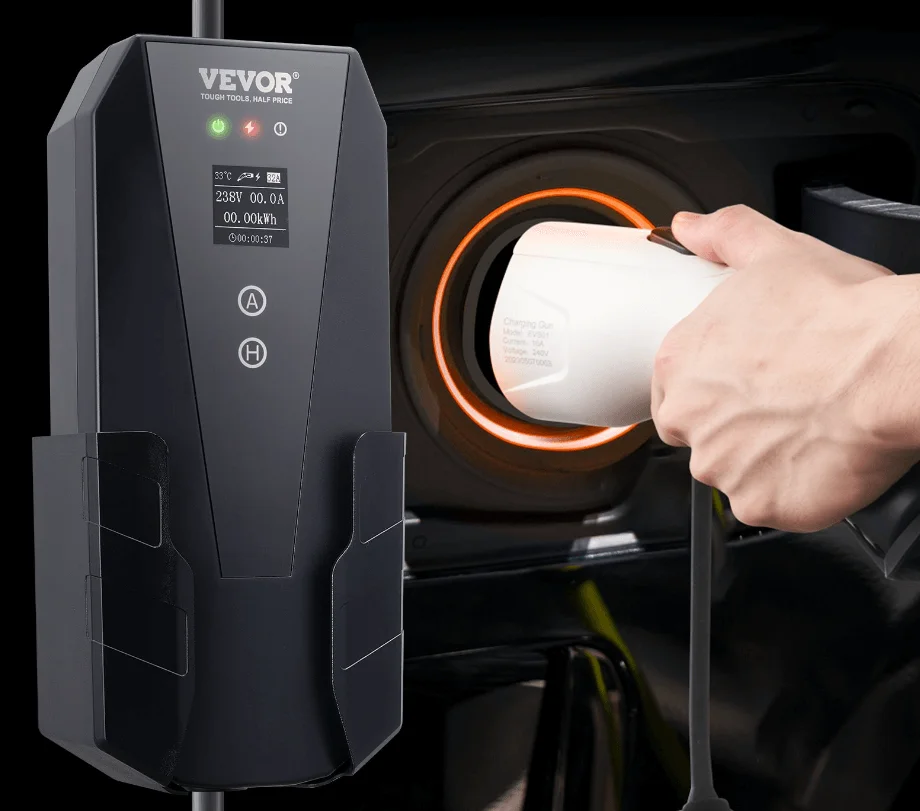
Charging your electric vehicle is classified into two forms: AC and DC. Furthermore, AC charging has two options: slow or fast charging, while DC supplies fast charging.
However, the charging times of EVs depend on the type of charger. But it depends on the hybrid vehicle; whether it’s a plug-in hybrid or a conventional hybrid, there may or may not be a need for an external charger.
Different Types of EV Charger
What are the different types of chargers and are all EV chargers compatible? Generally, EV chargers are of three types which are:
- Level 1 EV Charger
- Level 2 EV Charger
- Level 3 EV Charger
Level 1 EV Chargers
Level 1 chargers are affordable electric vehicle (EV) chargers that plug into a standard wall outlet, allowing you to charge between 2-5 miles of range per hour. You can easily install it without any infrastructure, and it is compatible with all EVs, as they are usually included in vehicles, so they’re cost-effective. But they don’t meet the needs of individuals with greater daily mileage or those who require quick turnaround time.
However, Level 1 chargers have a limited speed; these types of chargers play a significant role in the EV charging network and provide a quick and easy solution for homeowners.
Best Use Cases for Level 1 Charger
These are the slowest chargers and deliver charging through a 120-volt AC plug, so they can be easily used in any household without requiring additional special installation. Here are the reasons why Level 1 chargers are the best types of charger:
Overnight Charging:
These different types of chargers are ideal for overnight charging since they produce around 3-5 miles of range every hour, and you can get 36 to 60 miles of range through overnight charging, sufficient for many commuters.
Assisting to Level 2 and 3 Charger
Level 1 chargers are ideal for homeowners and businesses already relying on level 2 or 3 types of chargers. For instance, if you already have a Level 2 charger but have a Level 1 charger on hand, you can provide a backup option if your main charger is occupied by another vehicle or out of service.
Workplace Top-Up Charging
For PHEV owners or those whose workspace has a limited number of chargers, topping up your battery with a level 1 charger is a good solution for your battery throughout the day.
Charging While Travelling
Level 1 chargers can easily used after plugging into any regular outlet. So they’re good for charging your EV while far away from your home when you can’t access the EV charging station.
Pros of Level 1 Charging
- A standard household socket is enough, and no special wiring is required
- Allow to be widely used for home charging
- Cut out the additional cost
- Easy installation
- Compatible with all EV
- Suitable for overnight home charging
Cons of Level 1 Charging
- Insufficient charging speed for users
- Allow limited range
- Only suitable for a residential system
- Lack of Flexibility
Level 2 EV Chargers
Level 2 chargers are faster than level 1 and are a major electric vehicle charging technology advancement. You need 240 volts of power to use these chargers, and a certified electrician usually installs them. EV owners experience a charging range of 10 to 60 miles per hour, depending on the vehicle’s battery capacity and charger’s power output. Users with quick turnaround times or those with higher daily mileage found level chargers an ideal one.
Regardless of initial costs for wiring and compatible outlets, level 2 chargers are different types of chargers as they’re cost-effective and convenient in the long run. By accommodating the diverse needs of homeowners, they provide flexibility to homeowners, workplaces, and public charging. By alleviating anxiety, these chargers promote the adoption of electric vehicles. Electric vehicles, supported by level 2 chargers, continue to thrive while providing convenience, speed, and reliability.
Best Use Case for Level 2 Chargers
This level 2 charger balances speed, efficiency, and electrical vehicles (EV). Here are the best use cases for level 2 chargers, especially for those seeking cost-effective and reliable solutions.
Workspaces and Commuter Parking
Nowadays, many employers have recognized the value of level 2 chargers. Their availability can benefit employers who own EVs, allowing them to charge during office hours. Level 2 chargers can easily top up EV electric vehicles that park in public spaces or if they’re far away from home.
Apartment and Condo Buildings
Level 2 chargers offer an ideal solution for those living in apartments, buildings, and shared parking areas. They provide a faster turnaround than level 1 chargers, so more people can use this charging station.
Fleet Vehicle Charging Stations
In businesses where EV fleets are used for deliveries or transportation services, level 2 chargers are ideal for maintaining day-to-day tasks. In this way, vehicles are ready to go on the road without taking more time.
Pros for Level 2 Types of Charger
- Faster Charging Times
- Cost Efficiency
- Energy Management
- Increased in Speed and Accessibility
Cons For Level 2 Types of Charger
- Space Consideration
- Higher Investment
- Require Professional Installation
- Slower than DC fast Chargers
DC Fast Chargers
A DC fast charger is also known as a Level 3 charger. These different charger types provide an ultra-fast charging speed and allow you to charge your EV (electric vehicle) within 20-30 minutes while maintaining 80% battery capacity. For rapid charging, they offer direct current power to your vehicle battery. If you’re on a long journey, having a DC charger is essential, especially for urban areas and highways. However, they cost you more in operating and installing, but they play an integral role in increasing the adoption of electric vehicles.
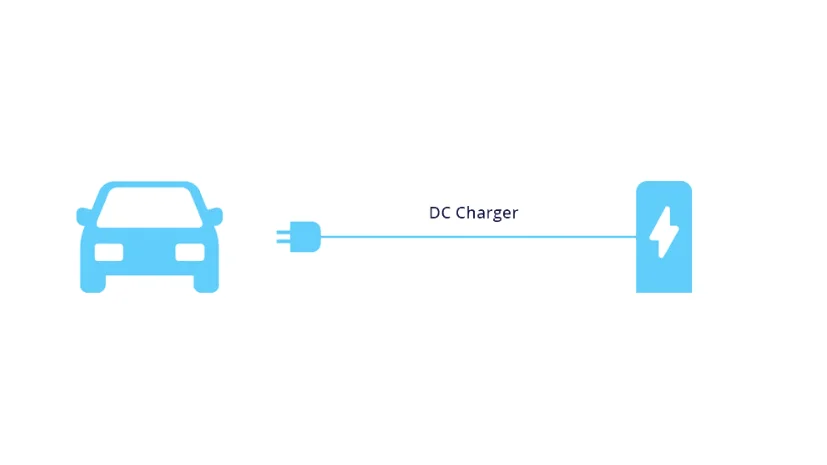
Best Use Cases for DC Fast Chargers
As electric vehicle purchases rise, so does the demand for faster charging solutions. Direct current (DC) fast chargers often significantly reduce charging time compared to AC chargers. Here, you can explore the best uses of DC fast chargers while initializing when and where to take the best advantages of this technology.
Urban Areas With High Level Of Usage
A DC fast charger supports long vehicle run times in urban areas where various users share EVs, such as carpooling and communal services. They’re preferred in tight schedules where vehicles must be rotated in and out of service throughout the day.
Emergency Scenarios
A DC fast charger is a savior when you face unexpected moments like your EV’s battery running low with insufficient battery charging to reach your destination. Offering peace of mind, these types of chargers are ideal for emergencies where every minute counts.
Limited Access to Home Charging
DC fast charge plays an important role in maintaining routine vehicle charging for drivers who live far away from their houses or in apartments without private garages. In this case, charging stations are always helpful for them.
Supporting the Adoption of EVs
To encourage the adoption of electric vehicles, charging infrastructure should be reliable and convenient. By placing DC fast chargers at convenient points, EV owners will have easy and quick charging options and reduce anxiety.
Installation Guide for DC Fast Chargers
Are all EV chargers compatible and require the same installation? DC charger installation requires careful planning and expertise due to its high power requirements and unique infrastructure. Here’s a general guide for installing a DC fast charger:
Choosing a Location: Select a suitable point for easy access for EV drivers.
Electrical Supply: Make sure the charger has access to a high-electrical supply.
Regulations: Before installation, take approval from high authorities.
Preparation of Infrastructure: Ensure a proper space for concrete pads, chargers, and cooling systems.
Electrical and Charger Installation: Get professional help installing the system and connecting the charger to the electric supply and cooling pads per the manufacturer’s guide.
Testing: Ensure system functionality through testing.
Pros of DC Fast Charger
- Reliable for long trips
- Better usage time
- High Power Capacity
Cons of DC Fast Charger
- Limited compatibility
- High electricity demand
- Unavailability of charging slots during high-demand
Choosing the Right EV Charger
To ensure efficiency and convenience always consider some factors while choosing the right EV charger:
- Compatibility
- Charger Speed and Type
- Safety
- Installation Requirements
- Features
- Warranty
- Cost
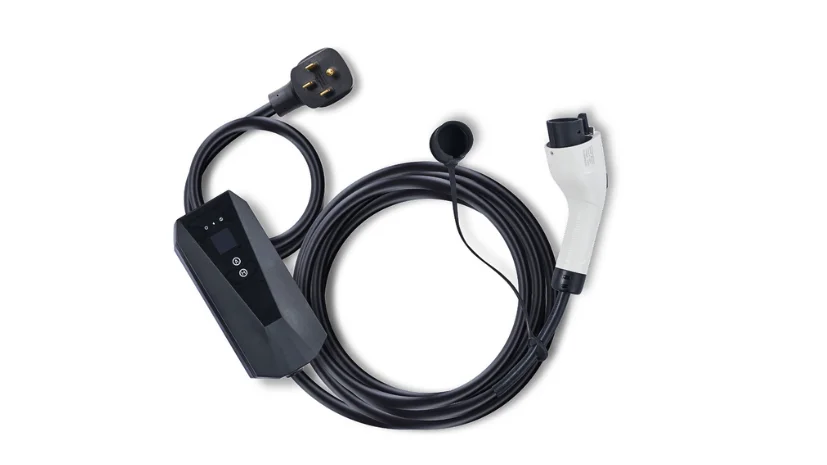
Comparison Between Level 1, Level 2, and DC Fast Charger
| Features | Level 1 Charger | Level 2 Charger | DC Fast Charger |
| Charging Time | 8-12hrs | 4-6hrs | 20-30mins |
| Voltage | 120 Volt | 240 Volt | 480+ Volt |
| Equipment | Portable Cord Set Incorporated with Vehicle | Charging Stations Installed at Home and Public locations | High Powered Stations Locality with Highways and Urban Areas |
| Cost | Low | Moderate | High |
| Usage | Overnight Charging at home | Faster Home and Public Areas Charging | Quick Charging for Long Journeys |
| Connector Type | Three Pong Plug For North America | J1772 for North America and IEC 1 or 2 for Europe | CCS or Tesla and Based on Compatability of Vehicle |
| Ampere | 16 amps | 80 amps | Higher than 140 amps |
Installation and Maintenance
Installing an EV charger in a home is a straightforward process. For this follow the below steps:
Gather materials and tools: Buy essential tools for installation like EV chargers, mounting hardware, wiring, circuit breakers, and connectors.
Choose the location: Choose a suitable location for the charger near the parking or garage.
Asses electrical system: Ensure your home electrical system support EV charger or do you require any upgrade.
Install electrical wiring: Install electrical wiring from your electric panel to the charger location.
Mount the charger: Mount the EV charger on the wall and ensure the charger is positioned at the right height.
Test the charger: Once installed, connect the power and turn on the button to ensure it’s working up to mark.
Configuration: Follow manufacturer instructions for any configuration process or any further steps.
Maintenance Tips for EV Chargers
Regular maintenance of your EV charger will ensure its longevity and efficiency. Here are some tips to keep your EV charger for optimal performance:
- Regular Cleaning
- Monitor Charging Sessions
- Examine Connectors and Cables
- Ensure Safety
- Inspect Mounting
- Follow Manufacturer Guidelines
Summing Up
Choosing the right type of charger is essential to maximize the convenience, efficiency, safety, and convenience of your electric vehicle experience. While choosing the charger, always look for your vehicle’s basic needs, speeds, cost, efficiency, and customer reviews.
Are all EV chargers compatible? Every time you buy EV chargers, this question comes to your mind, but the answer is no; not all manufacturers ensure high quality, safety, and ease of use. On the other hand, the VEVOR EV charger provides unmatched efficiency and reliability to its EV owners. Say goodbye to charging range stress and charge hassle-free with VEVOR’s versatile, high-end solution.

